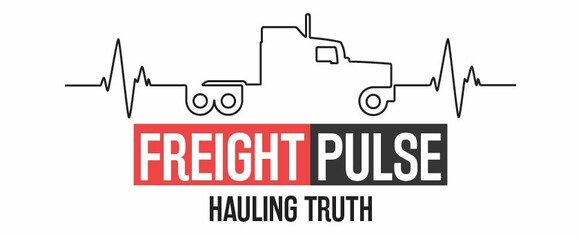Experts Warn of Potential Increase in Marijuana Use Among Truckers.
The Department of Transportation’s (DOT) upcoming implementation of oral-fluid drug testing for marijuana has sparked concern among experts who fear it may unintentionally encourage cannabis use among truck drivers. This new testing method, expected to roll out later this year, typically detects marijuana use only within 72 hours of consumption. According to Ken Fichtler, CEO of Gaize, a company specializing in real-time impairment detection technology, the shorter detection window may provide truck drivers with an opportunity to use marijuana without being caught during routine drug testing.
“The Department of Transportation’s shift to oral-fluid testing for cannabis will have serious consequences for the trucking industry,” Fichtler warned. “Oral-fluid tests generally have a detection window of 24 to 48 hours. This means truckers can use cannabis and avoid detection as long as they steer clear of drug tests for a couple of days.”
While drivers attempting to hide marijuana use could avoid work for two or three days to evade detection, those subjected to random oral-fluid tests could face significant consequences. Unlike urine tests, which can detect cannabis use for weeks, saliva-based testing offers only a short timeframe for detection. Fichtler believes the vast majority of drug testing will shift to oral-fluid testing once it becomes widely adopted.
Disagreement Over Detection Window
An official from the Substance Abuse and Mental Health Services Administration (SAMHSA), part of the Department of Health and Human Services, disputed Fichtler’s claim about the detection window. “In referenced journal articles, cannabis use can be detected via oral-fluid testing for up to 72 hours,” said the federal official, who requested anonymity.
The official also noted that when a donor receives a request for collection, they are unaware of whether the test will involve oral fluid or urine until they arrive at the collection facility. This uncertainty aims to prevent individuals from tailoring their behavior to circumvent detection.
Balancing Privacy and Safety
Federal drug officials assert that directly observed urine testing has been the most effective method for preventing specimen adulteration. However, directly observed urine collection is limited to specific circumstances due to privacy concerns. In contrast, all oral-fluid collections are directly observed, making it difficult to tamper with the process while being less intrusive to employee privacy.
Officials argue that offering oral-fluid testing as an alternative strikes a balance between privacy rights and the Department’s responsibility to ensure transportation safety by deterring illicit drug use.

Benefits of Oral-Fluid Testing
Drug testing experts point out several advantages of oral-fluid testing. Suhash Harwani, Senior Director of Science for Workforce Health Solutions at Quest Diagnostics, highlighted the benefits in a statement: “Our data illustrates that the federally mandated, safety-sensitive employee population historically shows a lower rate of drug positivity, likely because of decreased drug use when testing is anticipated.”
Harwani added that Quest Diagnostics offers oral-fluid testing through oral swabs and that interest in observed specimen collection methods continues to grow. In addition to being quick and convenient, oral-fluid testing can accurately detect recent use of a wide range of drugs, particularly THC, the psychoactive component of marijuana.
Implications for the Trucking Industry
While oral-fluid testing offers practical advantages, concerns remain about its potential to increase cannabis use among truckers. Critics argue that the limited detection window may inadvertently encourage drivers to use marijuana during their off-duty hours, potentially affecting their performance when they return to work.
Beyond safety concerns, the trucking industry could face additional operational challenges due to this shift. The shortage of qualified drivers, already a pressing issue, may worsen if more truckers test positive under the new system and are removed from service. Companies may need to implement more stringent hiring and monitoring policies, increasing administrative burdens and costs.
Furthermore, the legal landscape surrounding cannabis use varies widely across states, adding complexity to compliance efforts. Carriers operating in states where marijuana is legal may struggle to balance state laws with federal regulations, potentially leading to legal disputes and regulatory confusion.
As the DOT moves forward with implementing oral-fluid testing, industry stakeholders are urging careful consideration of how this change could impact road safety, driver availability, and the overall effectiveness of drug testing protocols.

